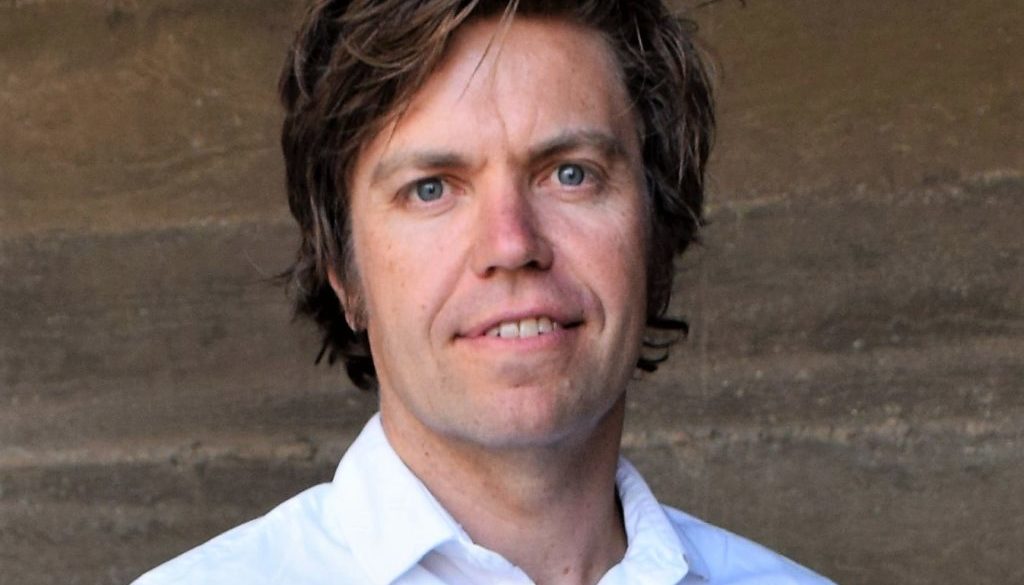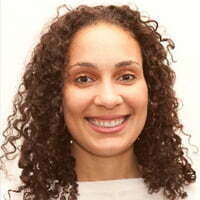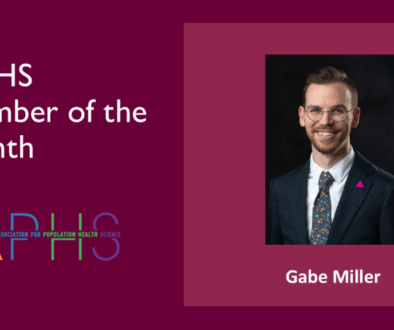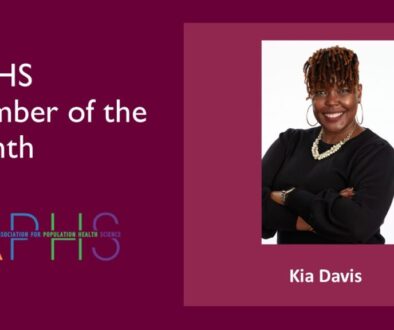Member of the Month: David H. Rehkopf
Hedwig LeeDavid H Rehkopf is an Associate Professor in the Division of Primary Care and Population Health, Department of Medicine, School of Medicine at Stanford University. He joined IAPHS in 2016. Follow David on twitter: @drehkopf
- Tell us a little about yourself, where are you from, where did you go to graduate school, what makes you jump out of bed each morning?
Most days helping to make breakfast for my kids and get them out the door to school gets me out of bed in the morning, but on the best days it is meeting a friend for a run or a ride before the kids wake up.
- How do you define yourself as a population health professional?
I try to fill the space between doing basic social science research and applied work in program evaluation and public policy research. My research products may not always provide an immediate answer of what to do, but I want them to give us ideas on new directions we should head in to improve health, to be followed up by evaluations of what actual works. It is critical to evaluate the impact of what we have done, but we also don’t want to only look at what we have done in the past.
- What disciplines do you engage with and are there disciplines that you would like to engage with?
Economics and sociology, now also with molecular biology. I looked over a list of academic disciplines and it was a challenge to find ones that wouldn’t have some positive impact on my work. But for the time being I am not engaging with Astrophysics, although perhaps they would have suggestions about some unmeasured priors for my DAGs.
- Describe a current project/initiative that you are excited about.
I’m really excited about work with Sepideh Modrek and Evan Roberts to examine the long-term health impacts of employment policies during the great depression. I’m also excited about work with Belinda Needham to examine the role of DNA methylation in health inequalities.
- Name a population health professional who you admire and why?
Tomas J. Aragon. He combines doing on the ground public health work with also thinking about and developing statistical and epidemiologic methods to improving those actions. He also somehow manages to have the time and commitment to be an amazing mentor as well.
- How did you hear about IAPHS?/Why did you decide to become a member of IAPHS?
From everyone. At first it seemed like it may be redundant to PAA, but after the first meeting I saw the need for it. It really has a different feel from PAA or the epidemiology meetings I have been to. The research is much more engaged on impact, and of course the disciplinary backgrounds of participants are more varied.
- Have you attended an IAPHS meeting? If so, what do you like most about these meeting?
Yes. I like that it is not only academics who attend.
- What would you tell someone who is considering joining IAPHS?
You should join if you are interested in your work having an impact, and becoming more engaged with users of research.
- What would you like to see IAPHS do in the future?
Really just to continue on the path it is on. As an academic researcher, it is most useful for me to continue to have people who are users of research in a variety of settings engaged in the dialogue. I am also excited about the idea of organizing groups around specific problems, groups that could meet virtually throughout the year and annually at the meetings. There are a lot of problems that won’t be solved in a year.
- Is there anything we have missed that you would like to add?
I’m appreciative of all of those who invested their time in founding IAPHS and making it a useful organization.
OTHER INFORMATION
- Name of organization: Stanford University
- Name of department/division: Division of Primary Care and Population Health, Department of Medicine, School of Medicine
- Title: Associate Professor
- Discipline: Social Epidemiology
- Year Joined IAPHS 2016
- Website Someday
- Twitter handle @drehkopf
- Favorite population health relevant book (Please use preferred citation style):
Kunitz, Stephen J. The health of populations: general theories and particular realities. Oxford University Press, USA, 2007. - Favorite population health relevant article(s) (3 MAX: Please use preferred citation style):
This is really difficult for me to answer, so I will limit myself to three articles that I read as a first year public health student at Berkeley that have had a particularly important impact on my work, and that I still recommend to students.
Haan, Mary, George A. Kaplan, and Terry Camacho. “Poverty and health prospective evidence from the Alameda county study.” American journal of epidemiology 125.6 (1987): 989-998.
Kaufman, Jay S., Richard S. Cooper, and Daniel L. McGee. “Socioeconomic status and health in blacks and whites: the problem of residual confounding and the resiliency of race.” Epidemiology 8.6 (1997): 621.
Krieger, Nancy. “Epidemiology and the web of causation: has anyone seen the spider?.” Social science & medicine 39.7 (1994): 887-903.
- Favorite movie, band, non-fiction, book, etc.:
This is a really difficult question, but I am limiting myself to my dozen favorite artists here: Stanley Kubrick, Miles Davis, Shane Carruth, David Lynch, Barry Lopez, Adrienne Rich, P.J. Harvey, Joel R. L. Phelps, David Foster Wallace, Antoni Gaudi, Haruki Murakami, Agnes Martin. Actually, it is all these people that get me out of bed in the morning.






All comments will be reviewed and posted if substantive and of general interest to IAPHS readers.